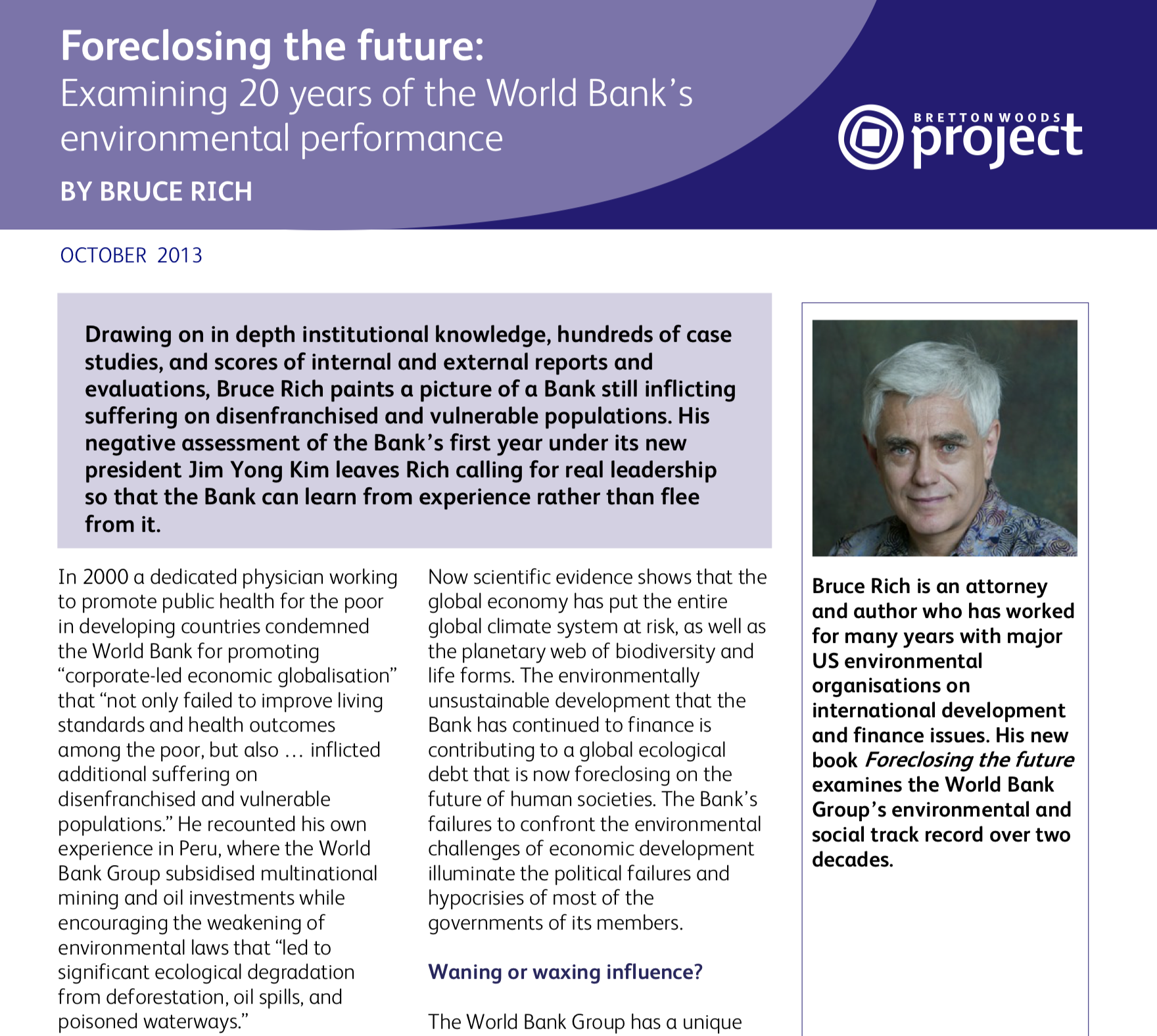- Bruce Rich
- Bretton Woods Project
- October, 2013
Drawing on in depth institutional knowledge, hundreds of case studies, and scores of internal and external reports and evaluations, Bruce Rich paints a picture of a Bank still inflicting suffering on disenfranchised and vulnerable populations. His negative assessment of the Bank’s first year under its new president Jim Yong Kim leaves Rich calling for real leadership so that the Bank can learn from experience rather than flee from it.
The growth of international private-sector finance, and of global public lending institutions in newly industrialising nations, such as China and Brazil, mean that the Bank has now become just one financial player amongst others. But the Bank remains critically important. It continues to put itself forth as an intellectual and policy leader for economic development in the UN system and in the global economy at large.Many of the Bank’s problems are associated with a dysfunctional institutional culture in which the relentless pressure to move money out the door, even in violation of the Bank’s own polices and rules, often overrides all other considerations. If the Bank is to play a more positive role it must finally change its own internal incentives to focus less on moving money out the door and more on developmental and environmental quality. To remain relevant, it should focus, as a 2007 internal evaluation report urged, on becoming a “beacon” of best environmental, social, and anti- corruption practice. Trying to compete with other lenders in quickly moving money out the door to countries that can borrow elsewhere is a losing game. In many situations strengthening governance must come first, with the Bank designing interventions in a sequenced fashion: where institutions and the rule of law are weak, they must be built up before committing billions to ambitious schemes.



